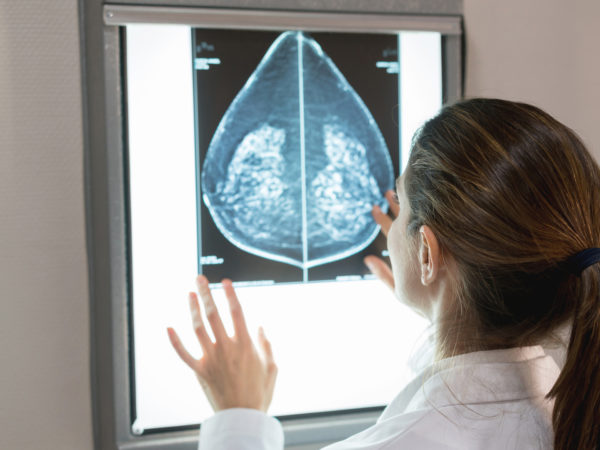Do Mammograms Save Lives?
I recently read that mammograms are no longer saving women’s lives. I would rather not have them if they don’t do any good. Are they still worthwhile?
Andrew Weil, M.D. | December 7, 2018

You may be referring to a study from Denmark and Norway that examined deaths from breast cancer before and after mammography was introduced. The authors reported that fewer and fewer women have been dying from breast cancer in recent years and that this decline is the same regardless of whether the women have been screened with mammograms.
Lead researcher, Henrik Støvring of Denmark’s Aahus University, wrote that the findings suggest there’s no longer any beneficial effect from the procedure. He maintainS that women with breast cancer are now living longer because of improvements in treatment protocols, not because of early detection via mammograms. The researchers followed all Norwegian women ages 30 to 89 and identified those who developed breast cancer between 1987 and 2010. They then compared the number of deaths from the disease before and after mammography screening was introduced. Dr. Støvring noted that the original randomised trials examining breast cancer screening “were conducted way back in the 1980s, and they showed an effect, but the fact is that the better the treatment methods become, the less benefit screening has.”
Women don’t always benefit from early discovery by mammography of a tiny tumor – even one as small as a millimeter in diameter. Dr. Støvring noted that some of these small nodules “are so slow-growing that the woman would have died a so-called natural death with undiagnosed cancer.” He conceded, however, that doctors aren’t yet able to tell the difference between small tumors that will spread and kill you and those that won’t.
There is little doubt that breast cancer is overdiagnosed – this problem was discussed by 450 researchers from around the world at the Preventing Overdiagnosis 2018 conference in Denmark in August. I reported on this issue after researchers at the Harvard School of Public Health, using data from Norway, found that between 15 and 25 percent of all cases of breast cancer revealed by mammograms are over-diagnosed and that those tumors would never become life threatening
We don’t know how well the findings from Denmark and Norway would translate to the U.S. or elsewhere in the world, even though Dr. Støvring contends that they should be relevant wherever women aged 50 to 69 are screened with mammograms every second year.
You also may be interested to know that for young women with a high genetic risk for breast cancer, annual mammograms do not appear to do as good a job as getting MRI scans twice a year. Researchers from the University of Chicago and the University of Washington in Seattle found that MRIs are “far more effective” at detecting early breast cancers in these women. To be eligible for the trial, a woman had to have a lifetime risk for breast cancer greater than 20 percent. Most had one of 11 known breast-cancer related genetic abnormalities, and some had been previously diagnosed with breast cancer or ductal carcinoma in situ before age 35 or had a mother or sister diagnosed with breast cancer before age 50 (before 40 for those of African ancestry). The researchers reported that because of the intensive surveillance and high-quality care available during the trial, most of the women participating didn’t develop breast cancer despite their high risk.
Researcher Gregory Karczmar, Ph.D., professor of radiology at the University of Chicago, noted that while mammograms are routinely used to screen for breast cancer, they’re not the best option for about 40 percent of women – including those with dense breasts as well as those with significant genetic risks.
Andrew Weil, M.D.
Sources:
Henrik Støvring et al, “Effect of organized mammography screening on breast cancer mortality: A population-based cohort study in Norway.” International Journal of Cancer, August 25, 2018
Olufunmilayo I Olopade et al, “Intensive surveillance with bi-annual dynamic contrast-enhanced magnetic resonance imaging downstages breast cancer in BRCA1 mutation carriers.” Clinical Cancer Research, August 28, 2018, DOI: 10.1158/1078-0432.CCR-18-0200











